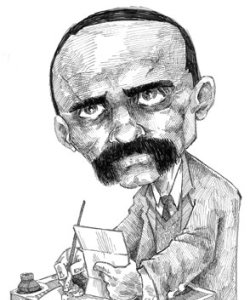Writers, Editors Say Adios to SASEs
The Council of Literary Magazines and Presses unveils the Submission Manager, software used to accept and track online submissions, resulting in less waste and more efficiency for writers and editors alike.
Jump to navigation Skip to content
The Council of Literary Magazines and Presses unveils the Submission Manager, software used to accept and track online submissions, resulting in less waste and more efficiency for writers and editors alike.
Literary MagNet chronicles the start-ups and closures, successes and failures, anniversaries and accolades, changes of editorship and special issues—in short, the news and trends—of literary magazines in America. This issue's MagNet features Oxford American, the Believer, Wholphin, McSweeney's, Rattapallax, the Reader, and Poetry Kanto.
Small Press Points highlights the happenings of the small press players. This issue features No Tell Books and Perugia Press.
Executive director of Poets House Lee Briccetti talks about the relocation and expansion of the country's largest poetry library.

Images of participants who tattooed one word from Shelley Jackson’s 2,095-word story, “Skin,” on their bodies as part of her “mortal work of art” project.
This Page One features excerpts from Corrections to My Memoirs by Michael Kun and Home Remedies by Angela Pneuman.

Taking cues from Letters to a Young Poet, published more than seventy years ago, the Letters to Poets project puts an updated spin on Rilke’s experiment in mentorship with organized correspondence between two distinct types of poets.
Last year a total of 172,000 books were published in the United States. Although that number reflects a 10 percent decrease from the previous year, it's easy to see how any one book could get lost in the shuffle—especially if it's one among the many memoirs being published every season. With the idea that there's strength in numbers, four memoirists who published books earlier this year have joined forces to promote their titles, developing a community of like-minded authors—and fostering emerging writers—along the way.
When fiction writer Barry Eisler heard last summer that Kepler's Books in Menlo Park, California, would close after fifty years in business, his first reaction was a loud expletive. His second was an e-mail to owner Clark Kepler with an offer to help. "I used to see those big author photos in the window…and I was working on what would become my first novel," says Eisler, the author of the Jain Rain series of thrillers. "My fantasies of literary success were all based on doing book signings at Kepler's."

A decade after the founding of Cave Canem, Eady speaks about the ways in which the organization has developed into a "safe haven for black poets."